The PSC Library is open M-W 8am-7:00pm and Th-F 8am-4:30pm. PSC Librarians are available through the "Chat Now" button or via email at librarians@prairiestate.edu.
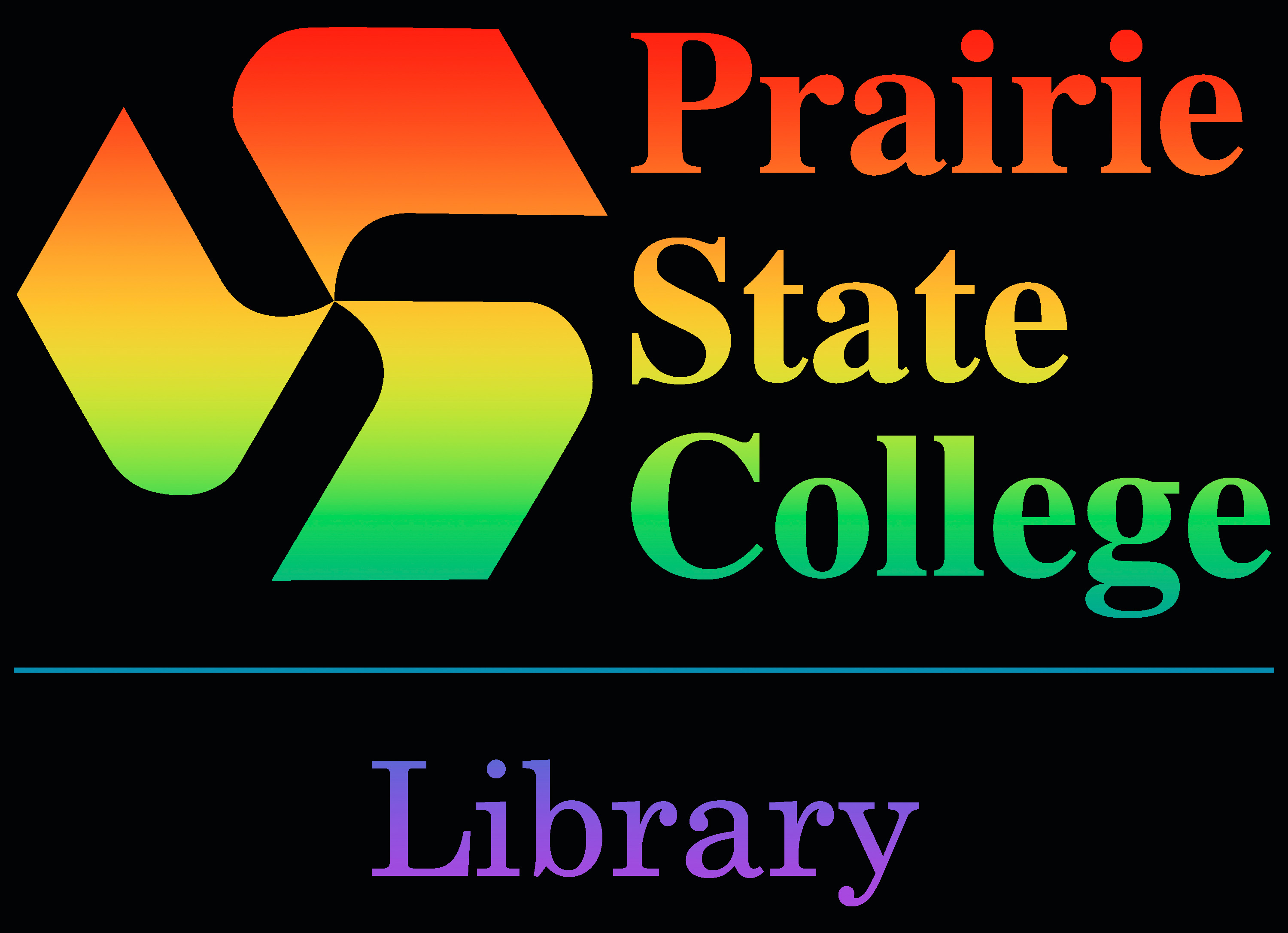
As you can see, this month’s newsletter will be a little different. We are breaking with the usual format in celebration of Pride Month. This newsletter will cover a history of the month, how libraries fit into the equation, dispel misinformation, and some practical tips and how-tos. Therefore, the order of the newsletter will be a little different from the usual. Many kudos to CJ Raich, Library Technical Assistant who wrote this newsletter!
By CJ Raich, Library Technical Assistant
LGBTQIA+ Pride Month exists as a way to commemorate the Stonewall Uprising (also known as the Stonewall Riots) of June 1969 and to recognize and celebrate the LGBTQIA+ community.
Early in the morning on June 28th, 1969, New York City police raided a gay club called the Stonewall Inn in Greenwich Village. Clubs like these existed as refuges for the gay community. Stonewall Inn was unique in the fact that it allowed women and drag queens—most gay bars were for gay men only. In spite of anti-homosexuality and anti-crossdressing laws, people could openly be themselves at Stonewall. Police raids at gay bars were common, and were direct attempts to quash the queer community and criminalize queer people just for existing. On this day, people were violently forced out of the Stonewall Inn and taken into custody. When one woman was hit over the head by a cop as she was being forced into a police van, she shouted for her peers to act, and they did. People began throwing things at the police, and soon barricaded themselves in the bar, which at one point was set on fire by a mob, who had connections with the police.
Though the fire was put out and people eventually dispersed, over the next five days, other protests happened around other gay clubs around the city. The following year on the anniversary of the riots, thousands of people marched from the Stonewall Inn to Central Park to commemorate that day and to continue to protest for queer liberation.
Why do people think Pride Month is necessary? Why does this community get recognition for existing?
Like any marginalized community, sometimes the very act of existing as a queer person is seen as a dangerous act of rebellion. Queer people have always existed, yet have continually endured struggles that try to eradicate them. Some states this year, including Iowa and Kentucky, have proposed same-sex and interracial marriage bans. In early March, Michael Knowles made a CPAC speech calling for the “eradication of transgenderism” as an ideology. Transgender people are not an ideology. They are people. To call for the eradication of transgenderism is to call for the end of trans people existing at all—a death sentence. Not to mention, the same rhetoric of “eliminate [marginalized identity] ideology” has been used to divide and demonize basically every marginalized group since time began, and has been used as justification for genocides many times over. Book challenges and bans and “anti-woke” laws restricting what teachers can teach or who even are allowed to teach are sweeping across the country in record numbers due to homophobia, transphobia, and racism.
In spite of it all, LGBTQIA+ people continue to fight for equal rights under the law. That’s why LGBTQIA+ Pride Month is necessary.
Why do libraries care?
Let’s talk about the ALA’s (American Library Association) Library Bill of Rights, which can be found here: https://www.ala.org/advocacy/intfreedom/librarybill
In sum, the Library Bill of Rights affirms that libraries should provide access to information for everyone in their communities regardless of identity or origin, fight censorship, provide materials on all points of view regardless of partisan or doctrinal approval, and that everyone is entitled to privacy and confidentiality with their personal library use. Illinois recently passed a bill that ties library funding with the adoption of the ALA Library Bill of Rights.
Each year in preparation for Banned Books Week in September, the ALA releases a list of the top ten most challenged books in the country. Half of the top ten books that were challenged in 2021 were on that list because they contained LGBTQIA+ themes, which some people claim are always obscene even if the books are developmentally appropriate for the age group of their intended audiences. Other reasons for book challenges include mentioning of racial issues (including claims that certain books are “anti-white”), criticism of police, use of profanity, and sexuality.
Despite the common misconception that all someone needs to be a librarian is a love for reading and books, librarians are trained extensively for their careers just like any other educated professional. While there are different levels of education required for certain roles, more often than not, having a Master’s degree in Library and Information Science (MLIS) in the United States, acquired from an educational institution that is accredited by the American Library Association, is the standard to be considered a librarian. MLIS programs tend to have different career tracks that vary from children’s librarianship to community outreach librarianship.
The point is: all these conversations about age appropriateness, relevancy, literary value, and factualness are always and have always been going on in the library world, from library school classes and training to on-the-job training and professional development. It is not hyperbole to say that librarians are more qualified than most people when it comes to finding and creating collections of appropriate reading materials to serve their communities. They also recognize that while there are some books that a miniscule fraction of parents would not want their children to read, that does not mean that other people’s children should all be barred from ever having access to those books. Librarians are highly educated and skilled professionals, and they deserve to be recognized as such, just like the teachers and other educators who have also been under attack for similar reasons.
By being institutions that readily provide information on all subjects and allowing all kinds of people into their spaces, libraries have been made a target by fascists that believe their ideologies and their groups are the only ones that should be allowed. Pressure from these groups are the reason that states like Missouri no longer get state funding for their public libraries, even though they are desperately needed community spaces that provide more support for their areas than can ever be fully measured.
This is why libraries care.
What about Drag Queen Storytime? Isn’t that inappropriate for kids?
Okay, first, let’s look at how libraries plan their programs.
Usually, routine (like weekly or monthly) children’s story times are led by a librarian for the majority of the time. Books are meticulously chosen for the age group the storytime is intended for, as well as the activities and materials used during those activities.
Occasionally, in addition to librarian-led programs, there are sometimes opportunities and funds for an outside paid performer/instructor to come to the library to lead a program. Sometimes this is a puppeteer, or a magician, or a dance instructor, and the children’s librarian is very likely to be in the room during this program. Most of these performers and instructors are there to help foster a love of literacy and storytelling while leading their programs. So, if the library happens to invite a drag queen to host a program, and that drag queen happens to read an age-appropriate book, and maybe there’s some age-appropriate music and dancing, it really does not fall outside of ordinary program parameters. Drag is dressing up in a way that is not traditionally associated with the gender everyone typically sees that person as. That in itself is not inherently sexual or inappropriate for children. Children play “dress up” all the time. If a drag queen performer does something that does not align with what a library program is supposed to be—including if they did something inappropriate for the age group they are supposed to be entertaining—they would be asked by the library to leave and/or will not be invited again to lead any more library programs.
Of course, it would be remiss to ignore some of the main claims about drag queen storytimes that have been spreading around social media. There have been some videos circulating around that supposedly show age-inappropriate drag queen dancing at children’s library programs. As with a lot of viral social media stories, we librarians urge everyone to use critical thinking and research skills. This infographic from the International Federation of Library Associations and Institutions (IFLA) and FactCheck.org has some suggestions. When people started asking where these videos came from, it was found that these videos were altered by splicing in adult-oriented drag queen performances into a library program background.
Once again we would like to reiterate that librarians are educated professionals. While nobody is perfect all the time, they do put a lot of thought into the appropriateness of the outside programs and performers that they choose—just as much as when they lead a program themselves. They desire to have the library as a space people can come to to have fun and learn and enrich their lives, while acknowledging that everyone is different too and that not everyone will want to attend every program. All librarians are really asking is for people to trust—with their experience, skills, and education—that they are making appropriate professional choices.
What is Trans Affirming Care?
What is gender affirming care? According to the HHS Office of Population Affairs, “Gender-affirming care is a supportive form of healthcare. It consists of an array of services that may include medical, surgical, mental health, and non-medical services for transgender and nonbinary people.” This can include social affirmation, puberty blockers, hormone therapy, and gender-affirming surgeries.
If you’ve been noticing the news lately, you might have seen how several states in the U.S. have passed bills and laws either forbidding transgender affirming care or protecting the right to transgender affirming care. The majority of these bills are focused on minors; however, some states have passed legislation restricting trans affirming care for adults as well.
Of course, with all these bills being made about gender affirming care, a lot of misinformation is being spread about what it actually is and how it is done. So we’d like to take the opportunity to look at some of the common misconceptions and dispel some false claims that people have said about gender affirming care.
Let’s fight some common misinformation about gender affirming care:
Claim: Transgender people all want invasive, irreversible gender affirming surgery.
This is false. Someone who is transgender simply has a different gender identity than the one they were assigned at birth. While many trans people do want gender affirming surgery, that is not a requirement for every trans person. Some states require gender reassignment surgeries in order for people to change their legal gender, but these policies are, at the very least, outdated.
Claim: Trans people, especially children, are going to regret any transgender affirming care they had in the future.
While it is true that some people who have transitioned do detransition, those numbers are very small. For adults who have had gender affirming surgeries, the percentage of those who regret having them (0.3%) are exponentially less than people who have regretted common surgeries such as knee replacements (6%-30%) ( PRS Global Open , Gendergp.com). And for children, their transgender affirming care is different. They simply might want to be called a different name and/or pronouns, have a different haircut, or wear different clothes. These are all reversible. Adolescents might want to be on puberty blockers, whose effects are fully reversible, and teenagers might be prescribed hormone therapy, whose reversibility varies depending on the hormone treatments they undergo. But again, the vast majority of people who have had gender affirming care do not regret it, and experience less depression and anxiety that would lead to suicidal thoughts and actions.
Claim: Health care providers will perform irreversible surgeries on minors who say they’re transgender.
This is false. No healthcare providers are advocating for minors to undergo transgender affirming surgeries.
Claim: Puberty blockers cause irreversible side effects.
This is false. Puberty blockers are basically putting puberty on hold until adolescents are able to choose for themselves whether they want to medically transition. Should they stop taking puberty blockers, they will undergo puberty as a cisgender person would. It is also worth noting that these medications are also used for cisgender children who undergo precocious puberty (puberty that is too soon for their body’s growth and development), and total bans on these medications would have severe consequences for more than just transgender children.
References
HHS Office of Population Affairs: https://opa.hhs.gov/sites/default/files/2022-03/gender-affirming-care-young-people-march-2022.pdf
The Scientific American. “What the Science on Gender-Affirming Care for Transgender Kids Really Shows.” https://www.scientificamerican.com/article/what-the-science-on-gender-affirming-care-for-transgender-kids-really-shows/
Association of American Medical Colleges. “What is gender-affirming care? Your questions answered.” https://www.aamc.org/news/what-gender-affirming-care-your-questions-answered
Gendergp.com. “New Study Confirms Extremely Low Regret Rates for Gender-Affirming Surgery.” https://www.gendergp.com/new-study-confirms-regret-rates-of-gender-affirming-surgery-are-non-existent/#:~:text=The%200.3%25%20regret%20rate%20of,that%20of%20gender%2Daffirming%20surgery.
Plast Reconstr Surg Glob Open. “Regret after Gender-affirmation Surgery: A Systematic Review and Meta-analysis of Prevalence.” https://www.ncbi.nlm.nih.gov/pmc/articles/PMC8099405/
AP News. “How common is transgender treatment regret, detransitioning?” https://apnews.com/article/transgender-treatment-regret-detransition-371e927ec6e7a24cd9c77b5371c6ba2b#:~:text=In%20a%20review%20of%2027,surgeries%2C%20the%202021%20review%20said
In this next section you’ll get some how-to information on changing your name and/or gender. There are guidelines on the federal level as well as state for Indiana and Illinois. Here are guides for changing your legal name and gender:
Federal Resources:
National Center for Transgender Equality: https://transequality.org/
Social Security:
Immigration Documents:
Passport:
Illinois Resources:
Illinois Legal Aid Online: https://www.illinoislegalaid.org/
National Center for Transgender Equality:
Illinois Department of Health:
Illinois Secretary of State: https://www.ilsos.gov/
Changing Driver’s License/State ID:
Update Voter Registration:
Indiana Resources:
National Center for Transgender Equality:
Indiana Legal Services: https://www.indianalegalservices.org/
Indiana Bureau of Motor Vehicles:
Indiana Voter Registration:
Speak up against misinformation, homophobia, transphobia, and harmful policies. True allies are always needed.
If you have the ability to do so, there are many organizations that could use support, on every level from financial donations to providing asylum. Here are just a few:
There are many events going on in the area during Pride month!
Chicago Pride Events: https://chicagopride.gopride.com/events.cfm
Illinois Pride Events: https://www.enjoyillinois.com/travel-illinois/pride-festivals/
Language changes, but you can learn the best terms using PFLAG’s glossary of terms.
PFLAG (Parents and Friends of Lesbians and Gays) is “the nation's largest organization dedicated to supporting, educating, and advocating for LGBTQ+ people and those who love them.”
In keeping with this month's Pride theme we have some ebooks about the LGBTQIA+ experience. Please stop inside the library for many more throughout the month.
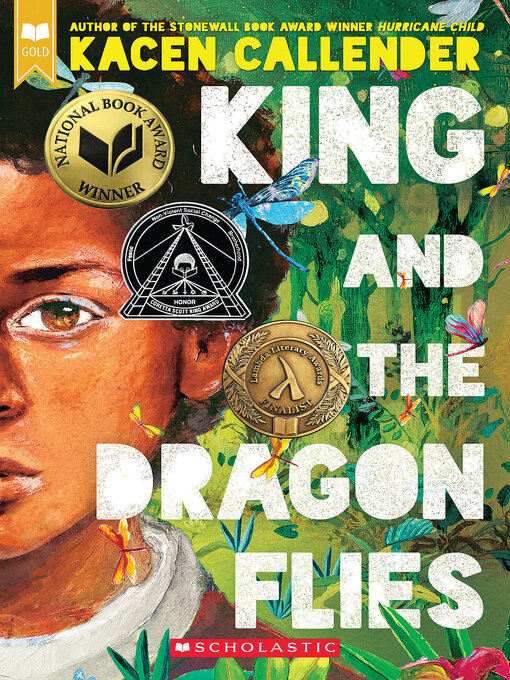 King and the DragonfliesKacen Callender |
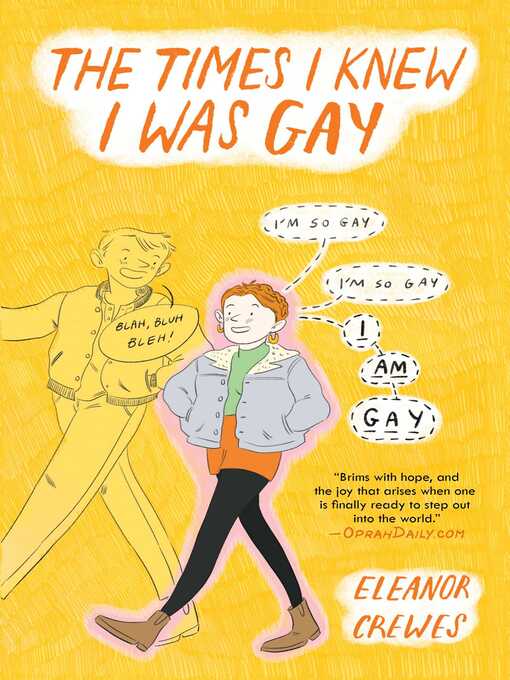 The Times I Knew I Was GayEleanor Crewes |
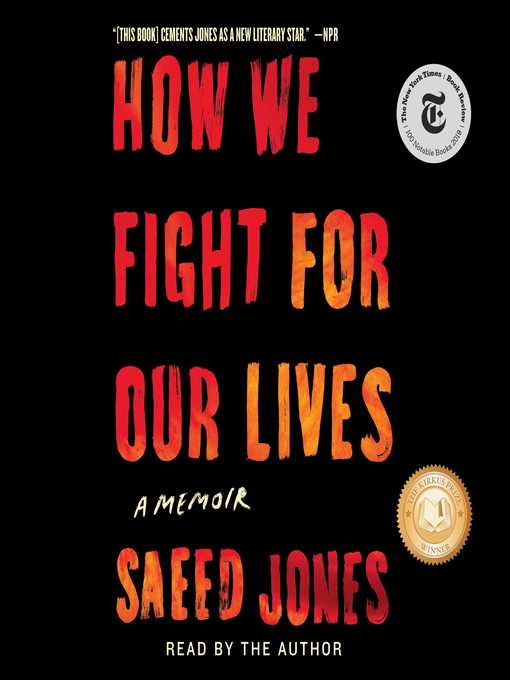 How We Fight For Our LivesSaeed Jones |
 The House in the Cerulean SeaTJ Klune |
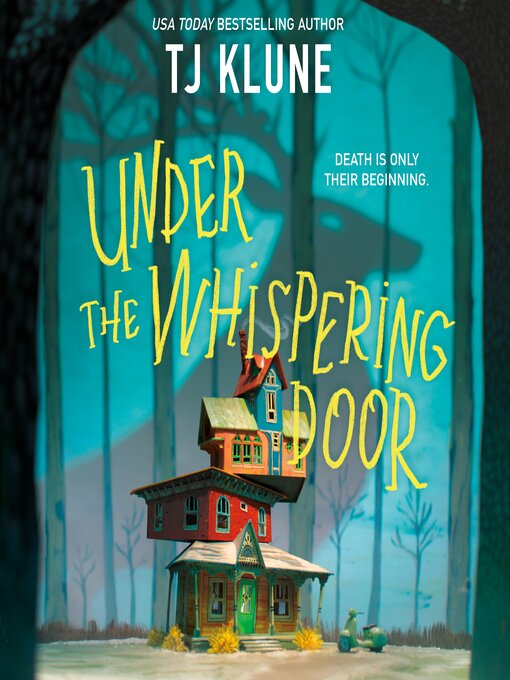 Under the Whispering DoorTJ Klune |
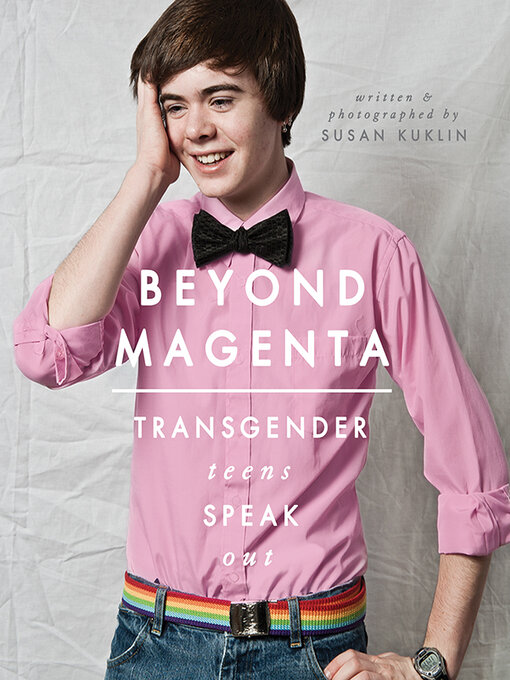 Beyond MagentaSusan Kuklin |
The Song of AchillesMadeline Miller |
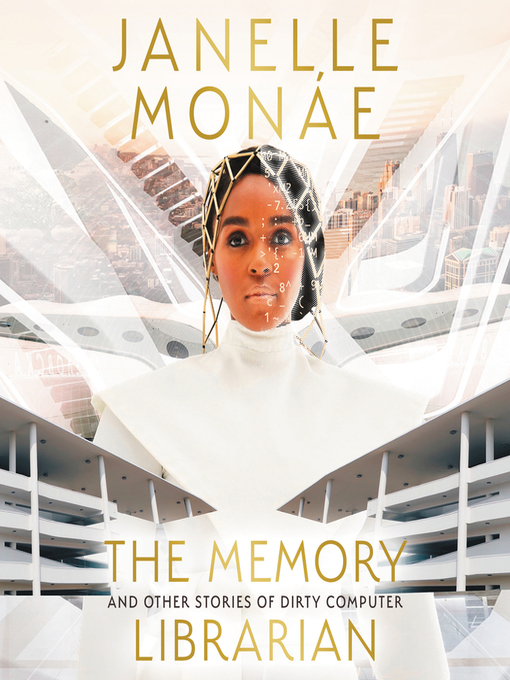 The Memory LibrarianJanelle Monáe |
 The Lesbiana’s Guide to Catholic SchoolSonora Reyes |
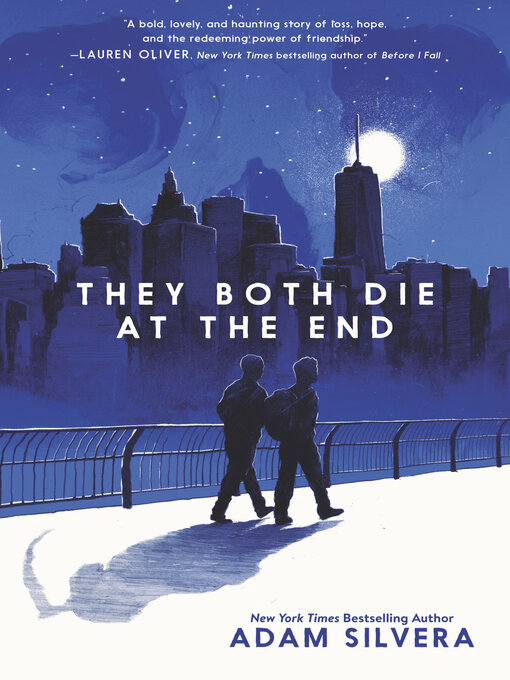 They Both Die at the EndAdam Silvera |
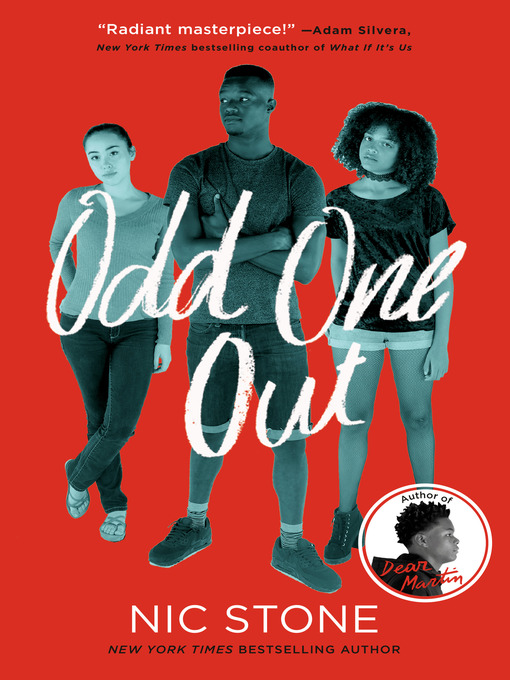 Odd One OutNic Stone |
 De ProfundisOscar Wilde |
Lastly, the library is here for you; reach out with any questions at Ask a Librarian!